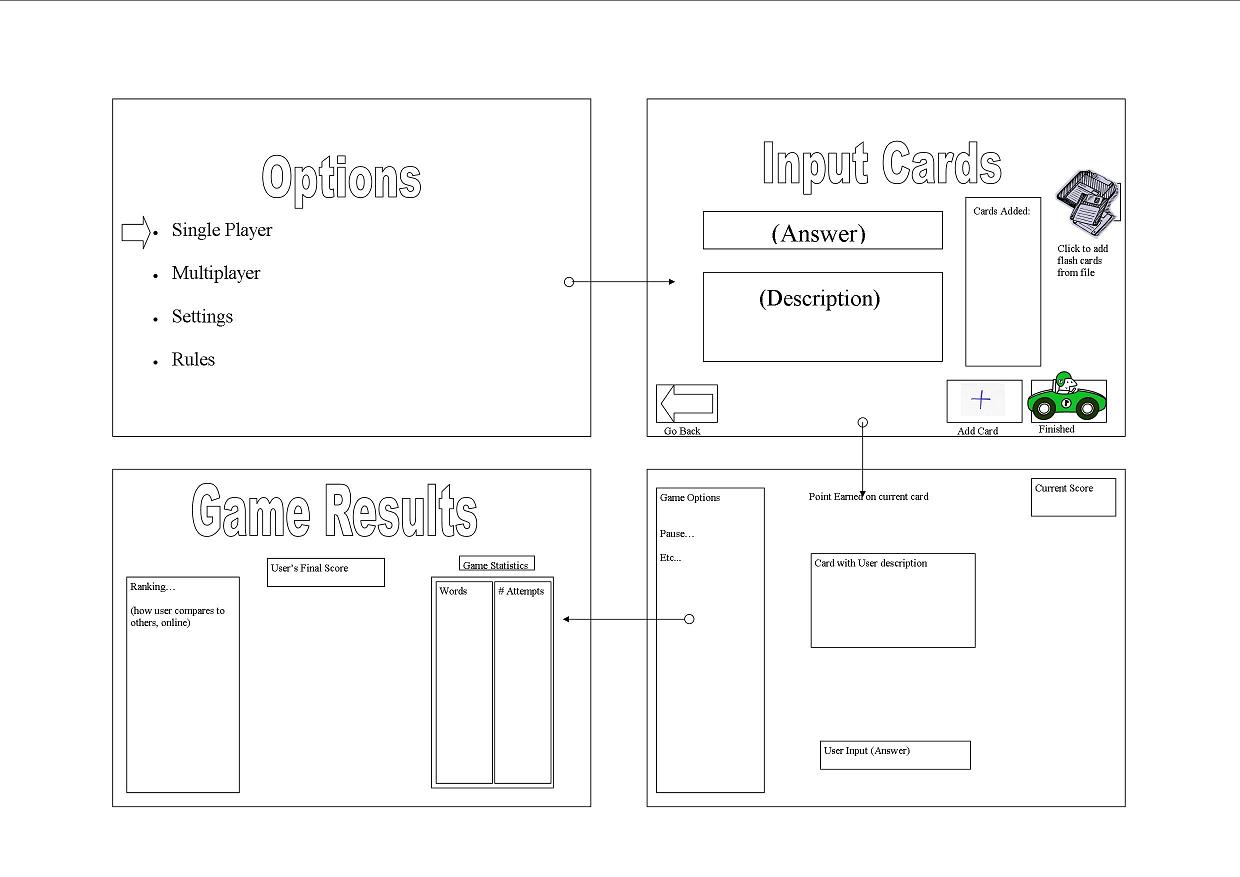ProjectProposal-KevinFriedheim
From CS 160 Fall 2008
Contents |
Target User Group
Everyone at some point has used flash cards as a mechanism for memorization. Some, however, use them more often than others, and so for that reason my target group is aimed at, but not limited to, those individuals: majors that make heavy use of flash cards (such as Integrative Biology, Chemistry, Medical students). These students have a seemingly endless amount of terms and definitions that they must have memorized, and many, if not all of them use flash cards to get the job done.
Problem Description
When we think of flash cards, typically we don’t all jump up and down and get excited. This is because it becomes a chore to have to do. It’s monotonous and boring, and when we’re finished, we aren’t met with a rush of satisfaction; more like you’re just glad that we’re finally done!
What do we do when we are bored and tired of studying? I’ll give you a hint; it starts with a “p.” That’s right, we procrastinate… like crazy. In some cases, we put off homework and studying (especially memorization) so much, that we might not ever end up doing it; or at least doing enough of it. Consequently, grades suffer, classes don’t get passed, and Mom and Dad stop giving you allowance. This is where the idea of merging procrastination with doing something useful comes in.
Problem Context and Forces
When creating actual flash cards on those awkward 3X5 index cards, we run the risk of mis-spelling words, writing illegibly, inscribing inaccurate or unhelpful descriptions, losing the cards that were created, and of course paper cuts (ouch!).
Also, think of the resources that are required for using actual flash cards: money to purchase the index cards, the time spent writing (and often rewriting) the cards, and the countless rubber bands required to hold them all together. Also, as mentioned earlier, when studying we have a tenancy to procrastinate; this includes when studying flash cards. All these factors take a good amount of time (especially the procrastinating). So something that should take a small amount of time, ends up dragging on forever.
Proposed Solution
The Game Objective
The obvious (serious) objective of this game, beside from winning by means of achieving the highest score, is to successfully memorize the game pieces, which are the flash cards.
Game Duration
Since each game you play has a time limit, the game forces you to complete a "round" in a given time frame. This effectively turns what would normally be your primary focus in studying (flash cards) into side-work that can be done in conjunction with studying something else.
Game Pieces
As mentioned the game pieces are the flash cards that the user specifies. The cards can be inputted individually one-by-one, or from a file in a particular file format. This gives the game more usefulness since lists of flash cards can be uploaded and shared.
Rules and Settings
There really is only one obvious rule to the game, NO CHEATING!!! That is, no looking at the answers as you're playing.
The game can be set up to play single player mode, or multiplayer mode. There is no limit to the number of people that can play simultaneously (a whole classroom can compete). The cards can be prompted in shuffled or linearly. User can specify the number of attempts on any particular card. Game timer can be set to a specified amount of time, or be default based on the number of flash cards inputted.
Single Player Mode
Play against yourself to see if you can beat your previous score; and hopefully you'll be encouraged enough to keep playing until you end up with a perfect score.
Multiplayer Mode
Play against your classmates and friends to see who is the most knowledgeable.
Scoring
‘x’ points per correct answer. -n point deduction for any false attempt and the card get reshuffled to give you more attempts (depending on settings). Consecutive correct answers yield bonus points.

